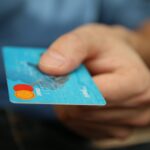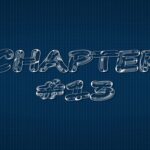
Consumer debt is at an all-time high. According to Experian, U.S. consumer debt grew by 6%, from $13.6 trillion in 2019 to $18.9 trillion in 2025, an increase of $4.6 trillion in 6 years.
Being in debt is nothing to be ashamed of and has happened to many of us one way or the other. Debt does not equal financial struggle and only poses a problem when it gets out of control. For this reason, it’s crucial for you to know how to manage your debts the correct way.
The right type and amount of debt can help you achieve various financial goals, like building your credit score, buying a house, or saving for education. However, in order to optimize your financial future, it’s critical to have your debt kept in check.
Here are some approaches to managing loans and debts to set yourself on the path to achieving your financial goals.
Contribute To Your Retirement Accounts And Emergency Fund
While paying down debt is also important, it’s essential to ensure you have a financial cushion to fall on in the event that you lose your job or face an unexpected expense, for instance, a sudden home repair or a surprise medical bill. The emergency fund is just like a savings account you can dip into when things go awry, considering the predictability of life. So once you receive your pay stub, consider contributing to your emergency fund.
Once you establish your emergency fund, you may want to consider retirement savings, especially as your emergency fund grows.
“You can always start small and then gradually increase your contributions over time. Small amounts can go a long way, especially if your employer offers a match program.” says Elizabeth Kozack, managing director and co-head of Marcus Lending
After putting these elements of financial planning in place, you can prioritize paying your debt.
Pay Down Debts With High Interest
Not all debt is equal. Specific debt, like mortgage or student loan, is traditionally considered good debt since it’s paying for something that is unlikely to lose value over time.
This may be a generalized categorization, but generally, good debt tends to have lower interest rates than other debts or can be a loan you’re paying back in installments.
Similarly, other types of debt may be revolving, which means the amount you owe is based on the credit you’ve used. This debt has a variable interest rate.
High-interest rates, on the other hand, like the ones often associated with credit cards, can make it complicated to not only make a dent in the principal or the original amount of funds you borrowed but also impact your function to save.
Utilize debt management tools.
Another avenue to pay down debt can be Debt consolidation which is a way to combine multiple debts into a single but larger debt through a personal loan.
This approach is especially effective for people burdened by high-interest credit card debt and can help reduce debt in two ways.
If your personal loan has a lower interest rate than your credit cards, this means the majority of your money can go toward paying down the principal instead of the interest.
The second way it can help is since debt consolidation loans have shorter, fixed terms compared to revolving credit card debt, you can pay off your debts faster and know precisely when your last payment will be.
It’s important to note that personal loans vary based on the lender. Terms will take your credit score into account, so the higher your credit score, the less interest you might have to pay.
Ensure that you compare loan terms and the origination fees, and remember that some personal loans may charge additional fees if you pay off the loan early.
Strategize On How To Stay Out Of Debt In The Future.
Paying off debt is only one part of a debt management strategy, and ensuring that you remain out of debt is also another crucial step in debt management. This means coming up with a budget plan and setting savings goals to stay on track.
“Once debt has been repaid, it is important to make a realistic budget based on earning power and basic needs. Cutting down on unnecessary spending is also key to avoiding getting caught up in consumer debt again. Another step is to start making your money work smarter for you. Consider savings accounts that offer high annual percentage yields. The higher the interest rate, the more money you can earn.” says Kozack.
Bottom Line
First things first, set up an emergency fund for when things go awry, and you have a financial cushion available to you. You can also consider retirement savings. When you start paying off your debts, pay off the ones with higher interest rates first, then go towards the ones with lesser interest rates. Many debt management tools like debt consolidation can help you lessen the burden of high-interest credit card debt. Finally, ensure that your future is secure and put into place debt management strategies to stay on track. We hope you find this article insightful.



